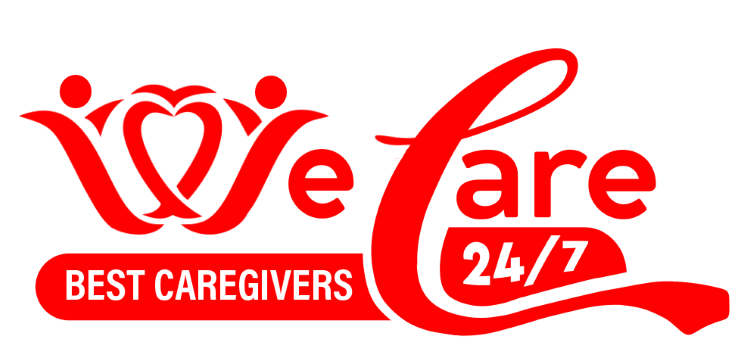Empower Your Grandchild’s Future: Benefits of NJ IEPs & 504s

Navigating Special Education Support for New Jersey Families
As a grandparent or caregiver in New Jersey, you play an indispensable role in shaping a child’s life. When a grandchild or a loved one with disabilities faces challenges in their educational journey, understanding the support systems available becomes paramount. In New Jersey, two significant frameworks—the Individualized Education Program (IEP) and the 504 Plan—stand as pillars of support for students with diverse learning needs. These plans are designed to ensure that every student, regardless of their challenges, receives an appropriate education alongside their peers.
This comprehensive guide from WeCare Home Caregivers aims to demystify IEPs and 504s, providing clarity on how they function within New Jersey’s school system. We’ll explore their benefits, how they differ, and what steps you can take to advocate for your grandchild or a loved one. Empowering yourself with this knowledge is a powerful step towards empowering their future, ensuring they have the tools and support to thrive academically and beyond.
Understanding Individualized Education Programs (IEPs) in New Jersey
An Individualized Education Program, or IEP, is a legally binding document tailored for students in public schools who have been identified with a disability that affects their educational performance. Governed by the federal Individuals with Disabilities Education Act (IDEA), IEPs are designed to provide special education services and supports specifically designed to meet the unique needs of a child with a disability.
In New Jersey, the process for obtaining an IEP is thorough and multi-faceted, involving a collaborative effort between families and the school district’s Child Study Team (CST). The goal is to create an educational plan that not only addresses academic challenges but also supports social, emotional, and physical development.
Who Qualifies for an IEP in New Jersey?
To qualify for an IEP in New Jersey, a student must be identified as having one of the 14 recognized disabilities under IDEA, and that disability must adversely affect their educational performance. These categories include, but are not limited to, autism, specific learning disabilities, speech or language impairment, emotional disturbance, intellectual disability, and other health impairments like ADHD (if it significantly impacts education). The impact on educational performance is a key determining factor, not just the diagnosis itself.
The NJ IEP Process: A Step-by-Step Overview
Navigating the IEP process can seem complex, but understanding each stage helps immensely:
- Referral: Concerns can be raised by parents, teachers, or other school personnel. In New Jersey, a written request to the school’s Child Study Team (CST) initiates the formal process.
- Evaluation: Once a referral is made, the CST (comprising a school psychologist, a learning disabilities teacher-consultant, and a school social worker) conducts a comprehensive evaluation. This involves assessments, observations, and gathering information from parents and teachers to understand the child’s strengths and challenges.
- Eligibility Determination: Following the evaluation, the CST meets with parents to review the findings. They determine if the child meets the criteria for a disability under IDEA and whether they require special education services to access the general education curriculum.
- IEP Development: If the child is found eligible, an IEP meeting is scheduled. This meeting brings together parents, the CST, general and special education teachers, and sometimes other specialists. The team collaboratively develops the IEP, outlining specific goals, services, accommodations, and the educational placement.
- IEP Implementation: Once finalized and agreed upon, the IEP is put into practice. The school is legally obligated to provide the services and accommodations outlined in the document.
- Annual Review: The IEP must be reviewed at least once a year to assess progress, adjust goals, and ensure the plan remains appropriate for the child’s evolving needs. A triennial reevaluation is also conducted every three years to determine continued eligibility.
Key Components of an Effective IEP
An IEP is more than just a list of services; it’s a comprehensive roadmap for a child’s education. Essential components include:
- Present Levels of Academic Achievement and Functional Performance (PLAAFP): This section describes how the child’s disability affects their involvement and progress in the general education curriculum.
- Measurable Annual Goals: Specific, measurable, achievable, relevant, and time-bound goals that address the child’s unique needs resulting from their disability.
- Special Education and Related Services: A detailed description of the special education services, accommodations (e.g., extended time on tests), modifications (e.g., altered assignments), and any related services (e.g., speech therapy, occupational therapy, counseling) the child will receive.
- Participation in General Education: An explanation of the extent to which the child will not participate with non-disabled children in the regular class and extracurricular activities. The goal is always to maximize inclusion to the greatest extent appropriate.
- Transition Services: For students aged 14 and older in New Jersey, the IEP must include a plan for transition services to prepare them for post-school activities, such as higher education, employment, and independent living.
Understanding 504 Plans in New Jersey
While IEPs are governed by IDEA, 504 Plans fall under Section 504 of the Rehabilitation Act of 1973. This civil rights law prohibits discrimination against individuals with disabilities in programs and activities receiving federal financial assistance, including public schools. A 504 Plan aims to ensure that students with disabilities have access to the same educational opportunities as their non-disabled peers.
Who Qualifies for a 504 Plan in New Jersey?
The eligibility criteria for a 504 Plan are broader than for an IEP. A student qualifies if they have a physical or mental impairment that substantially limits one or more major life activities, such as walking, seeing, hearing, speaking, breathing, learning, caring for oneself, or performing manual tasks. Unlike an IEP, the impairment does not necessarily need to affect educational performance to qualify for a 504 Plan, as long as it impacts a major life activity. This includes conditions like severe allergies, diabetes, ADHD, asthma, or anxiety, among others, that might not require special education but necessitate accommodations to ensure equal access to education.
Key Differences Between IEPs and 504 Plans
It’s important for New Jersey families to grasp the distinctions between these two plans:
- Legal Basis: IEPs are under IDEA (federal special education law); 504 Plans are under Section 504 of the Rehabilitation Act (federal civil rights law).
- Eligibility: IEPs require a specific disability that adversely affects educational performance and necessitates special education services. 504 Plans require a disability that substantially limits a major life activity, with no requirement for special education services, only accommodations.
- Services Provided: IEPs provide special education and related services, including specially designed instruction. 504 Plans provide accommodations and modifications within the general education classroom.
- Plan Content: IEPs are detailed legal documents with annual goals, present levels, and a comprehensive services outline. 504 Plans are typically less formal, outlining specific accommodations.
- Funding: Schools receive federal funding for students with IEPs; no additional funding is provided for 504 Plans.
Common Accommodations in a 504 Plan
504 Plans focus on providing reasonable accommodations to level the playing field. Examples in New Jersey schools might include:
- Extended time on tests or assignments.
- Preferential seating in the classroom.
- Access to notes or a note-taker.
- Breaks during the school day.
- Use of assistive technology.
- Adjusted homework loads.
- Specific protocols for medical needs (e.g., allergy action plan, diabetes management).
- Verbal testing instead of written.
The Grandparent and Caregiver’s Vital Role in Advocacy
Whether you’re a grandparent or a caregiver for an individual with disabilities, your advocacy is invaluable. Your unique perspective on the child’s daily life, strengths, and challenges outside of the school setting provides critical insights that school teams may not have. You are often the consistent voice ensuring that the child’s needs are met and their rights protected.
Tips for Effective Advocacy in New Jersey Schools
Being an effective advocate involves preparation, communication, and persistence:
- Understand Your Rights: Familiarize yourself with New Jersey’s special education regulations and federal laws like IDEA and Section 504. Knowledge is your strongest tool.
- Maintain Detailed Records: Keep a well-organized file of all communications (emails, letters), evaluation reports, IEPs/504 Plans, progress reports, and notes from meetings. Dates and details are important.
- Communicate Proactively: Establish open lines of communication with teachers, case managers, and the Child Study Team. Regular check-ins can prevent small issues from escalating.
- Prepare for Meetings: Before any IEP or 504 meeting, write down your concerns, questions, and desired outcomes. Share relevant observations from home life with the team.
- Bring Support: You have the right to bring an advocate, a trusted family member, or a friend to meetings for support and to help take notes.
- Seek External Resources: Organizations like the New Jersey Council on Developmental Disabilities or the Family & Community Services of New Jersey offer valuable resources, training, and support for families.
- Don’t Be Afraid to Disagree: If you don’t agree with a school’s decision, you have rights, including requesting mediation or a due process hearing. Always try to resolve issues at the lowest possible level first.
How Home Care Supports Educational Success
For children or young adults with disabilities, the support they receive at home is as vital as the support they receive at school. This is where the services of a dedicated home care agency like WeCare Home Caregivers can make a significant difference. While an IEP or 504 Plan addresses educational needs, home care addresses the daily living and personal support needs that contribute to overall well-being and, consequently, academic readiness.
Bridging School Support and Home Life
Consider how home care services can complement the structured environment provided by IEPs and 504s:
- Routine and Structure: Caregivers can help establish and maintain consistent daily routines—crucial for many individuals with special needs—which can positively impact their ability to engage with schoolwork and manage school-related stress.
- Personal Care Assistance: For individuals with physical disabilities, assistance with personal care (bathing, dressing, mobility) ensures they are comfortable and ready for school each day.
- Medication Management: If a student has complex medical needs, home caregivers can ensure medications are administered correctly and on schedule, supporting their health and ability to focus in class, aligning with medical protocols outlined in their 504 Plan or health services in their IEP.
- Post-School Support: After school, caregivers can assist with homework, reinforce learning strategies, or engage in therapeutic activities recommended by school specialists, helping to integrate classroom learning into the home environment.
- Transportation Assistance: Reliable and safe transportation to and from school, therapies, or extracurricular activities is often a significant barrier for families. Home care can provide this essential support.
- Respite for Family Caregivers: The demands of advocating for and caring for a child with special needs are extensive. Home care provides much-needed respite for parents and grandparents, allowing them to recharge and continue their advocacy effectively.
- Social and Emotional Well-being: A supportive home environment fosters emotional stability. Caregivers can provide companionship and help facilitate social skills development, which complements the social goals often found in IEPs.
By providing consistent, compassionate support at home, WeCare Home Caregivers helps create an environment where the benefits of IEPs and 504 Plans can be fully realized. We understand that a child’s success in school is deeply connected to their overall well-being and the stability of their home life.
Empowering Futures, Together
Understanding and navigating the landscape of IEPs and 504 Plans in New Jersey is an empowering journey for grandparents, adult children, and caregivers alike. These educational tools are fundamental in ensuring that children and young adults with disabilities receive the tailored support they need to thrive academically and personally.
Your role as an advocate is irreplaceable. By learning about these plans, actively participating in the process, and ensuring consistent support at home—perhaps with the compassionate assistance of a home care agency like WeCare Home Caregivers—you are laying the groundwork for a future where your grandchild or loved one can reach their full potential. The path may present challenges, but with knowledge, partnership, and dedicated home support, a brighter, more inclusive educational experience in New Jersey is within reach.
For more information on how WeCare Home Caregivers can support your family’s unique needs in New Jersey, please contact us today. We are here to help empower every step of their journey.



